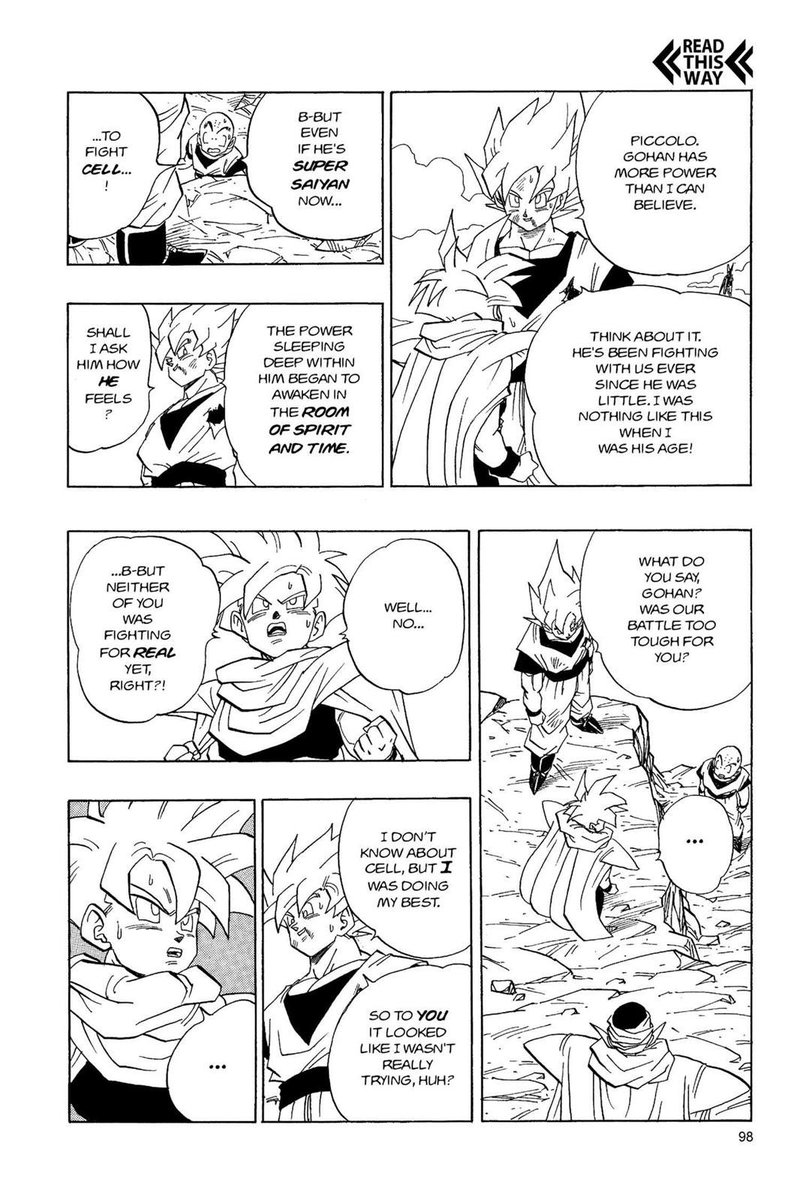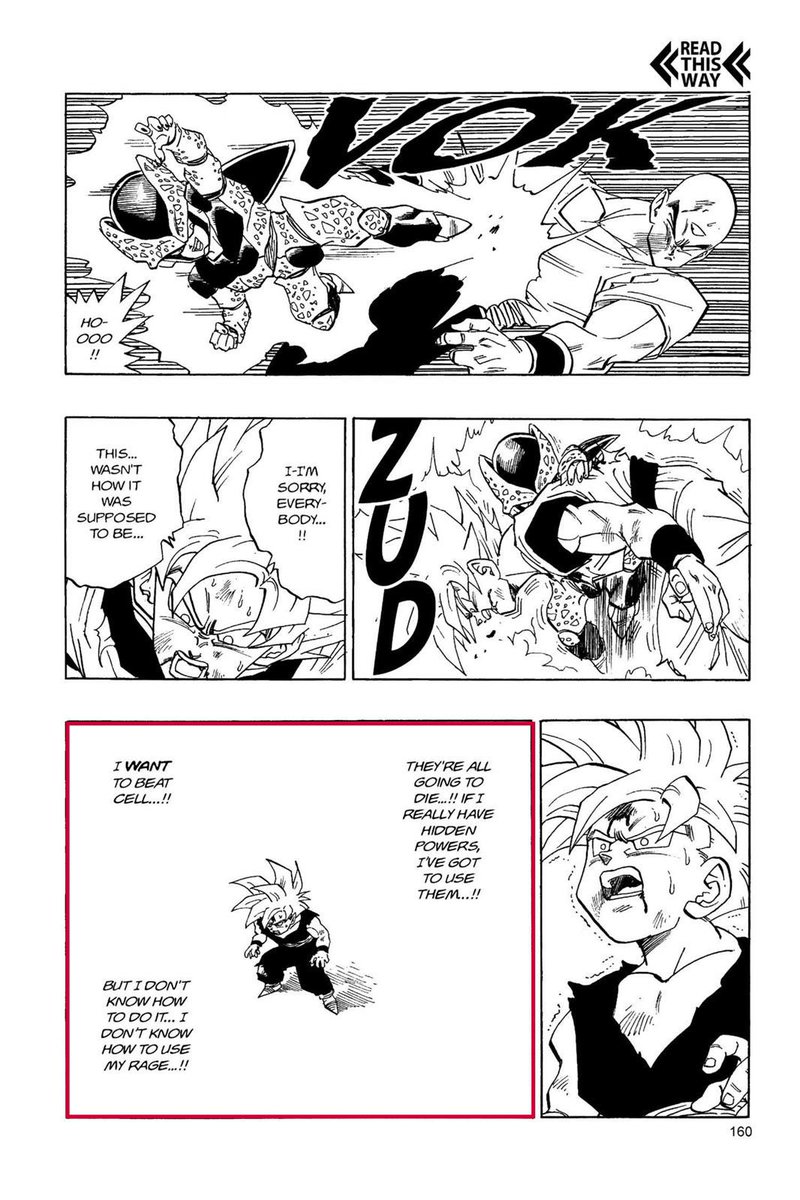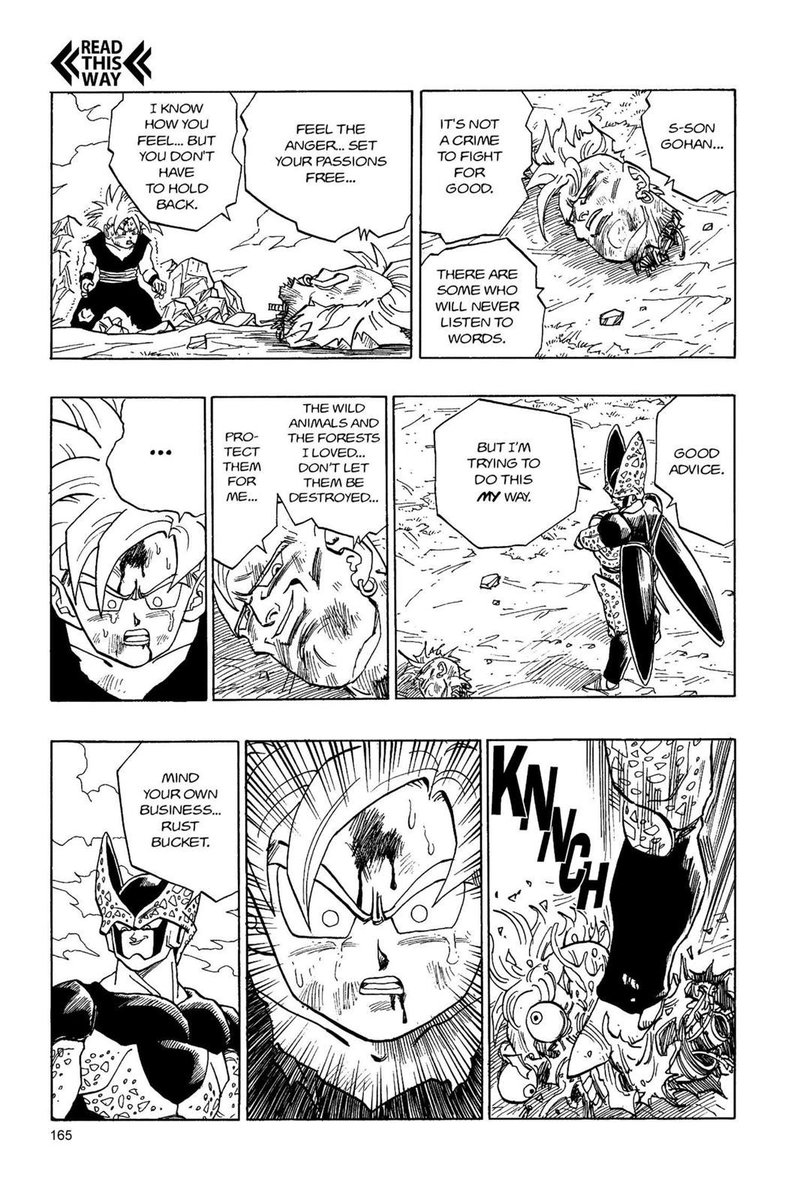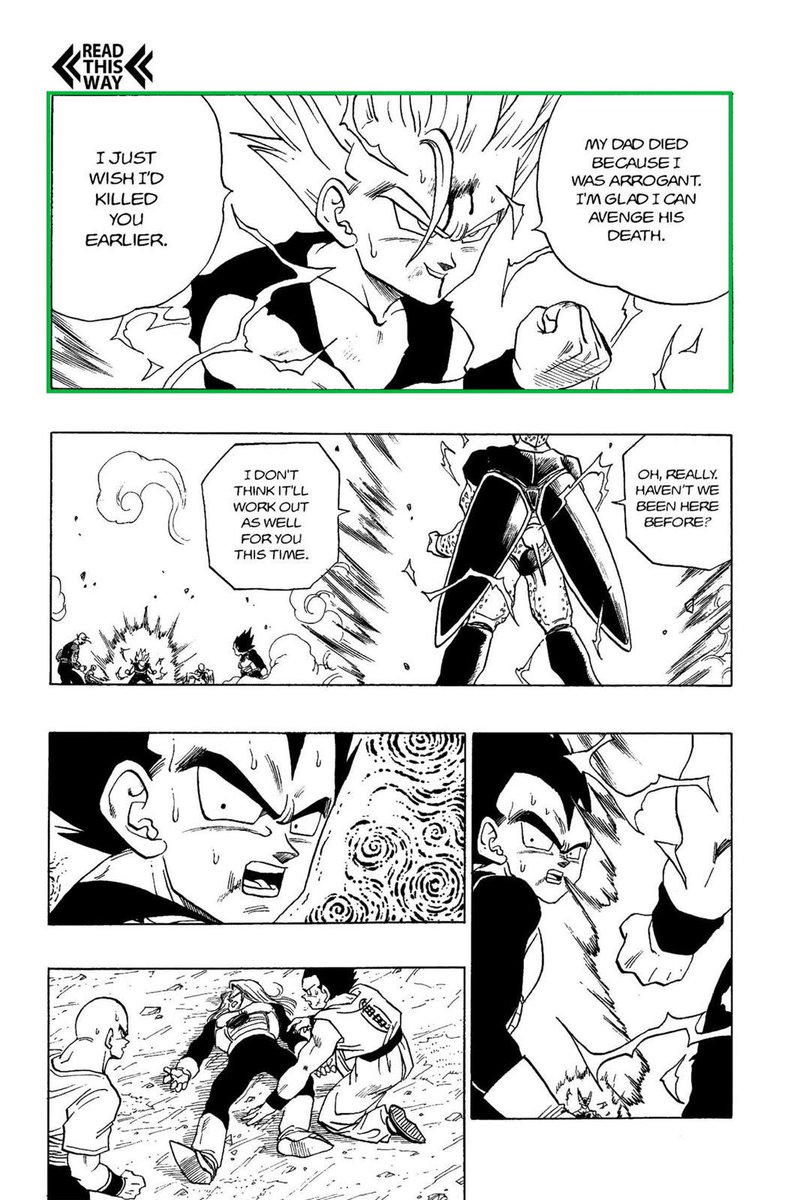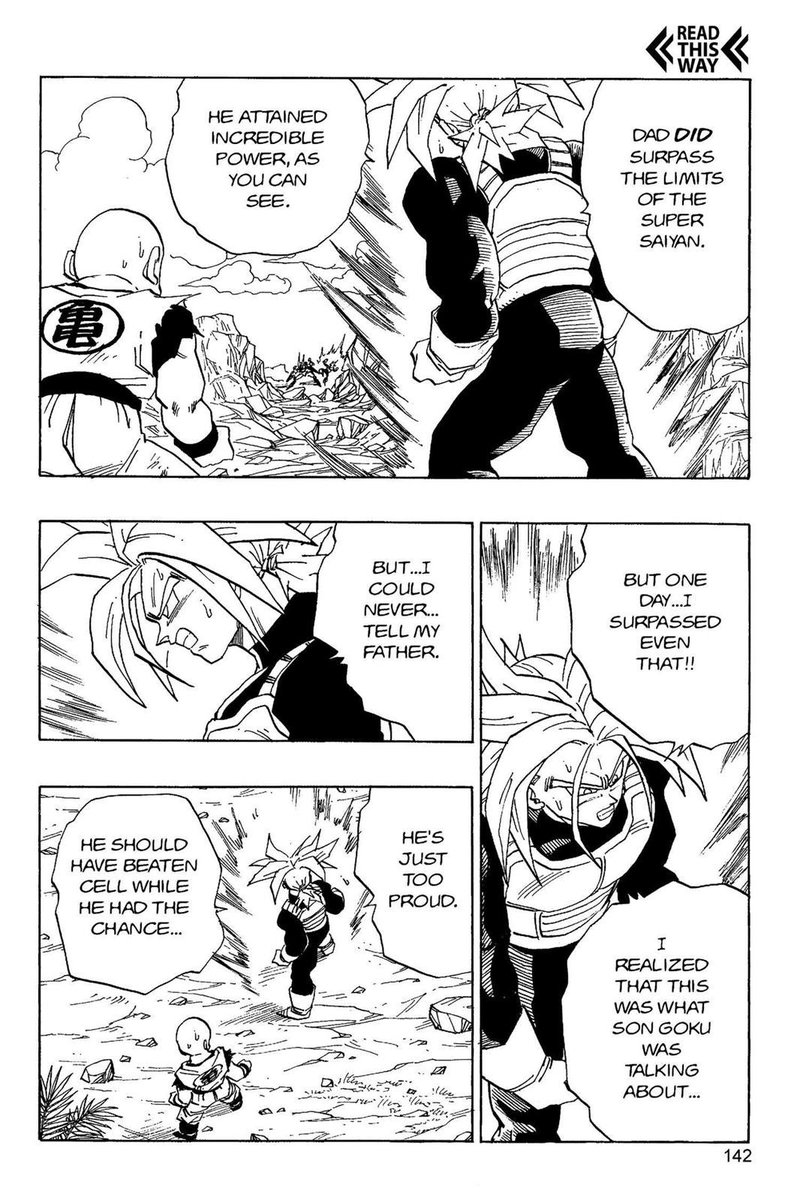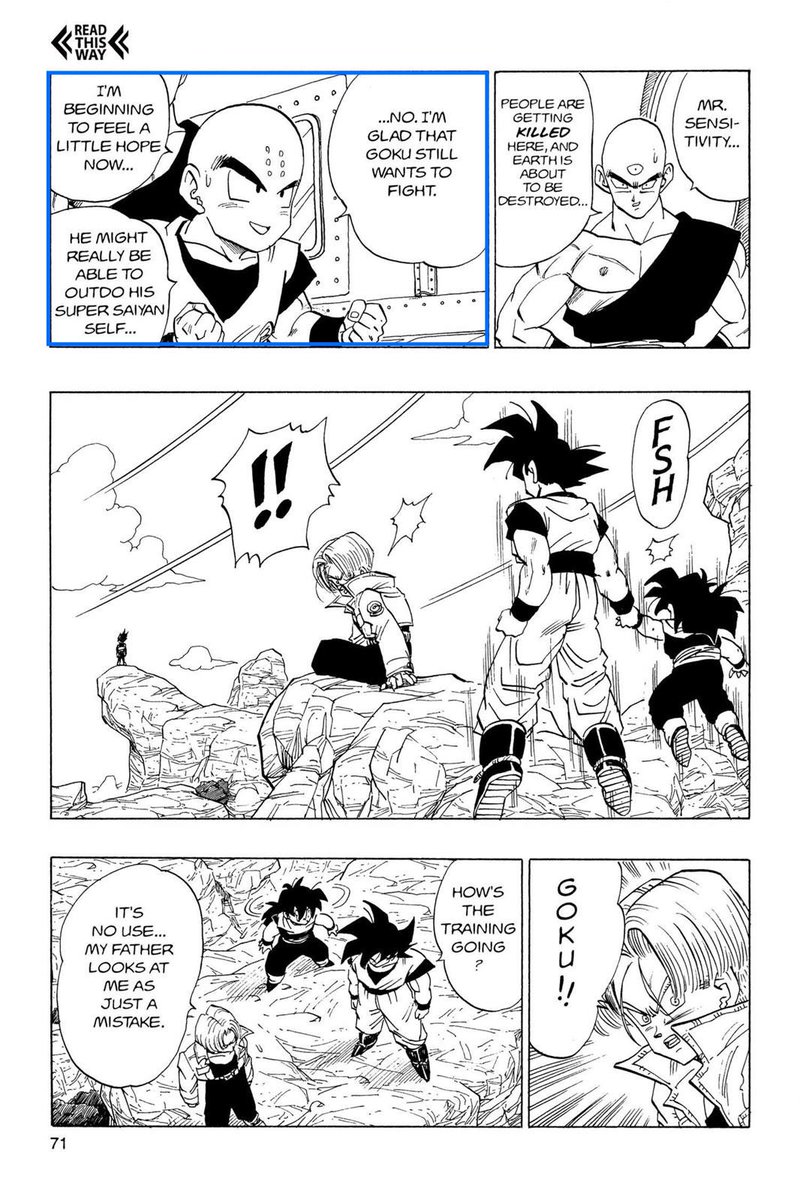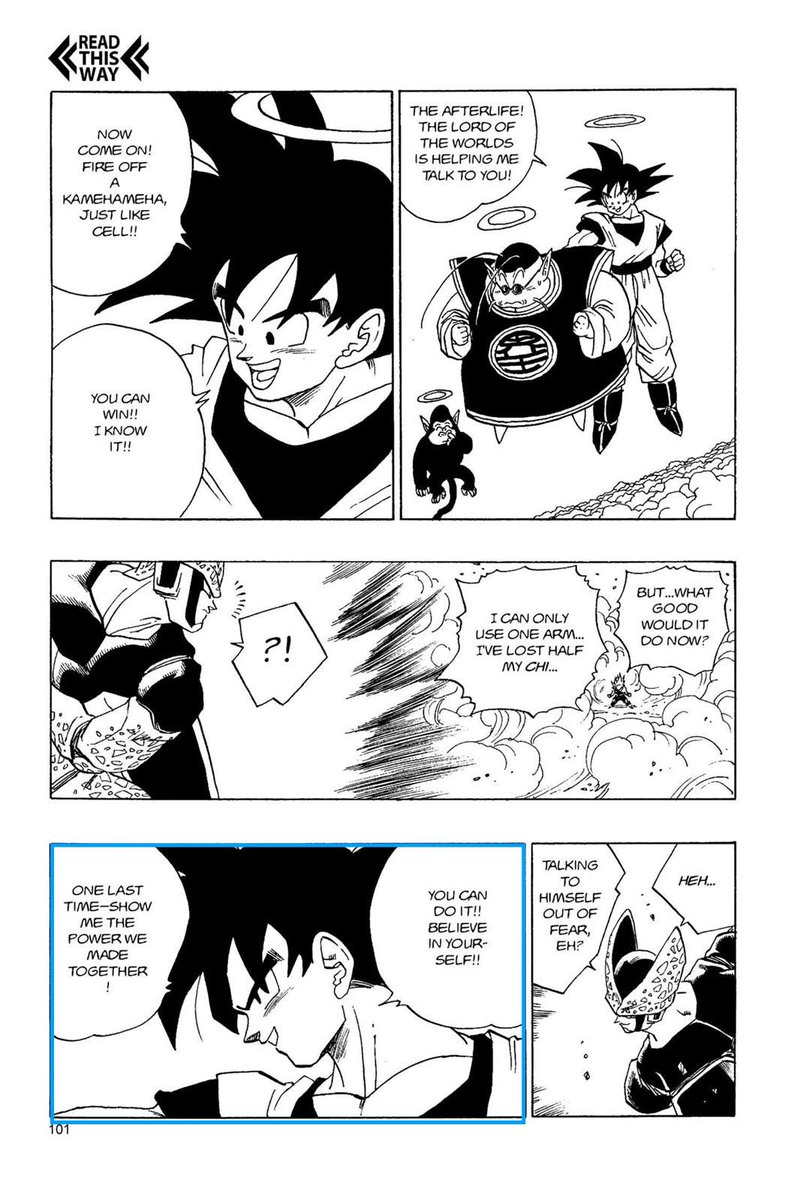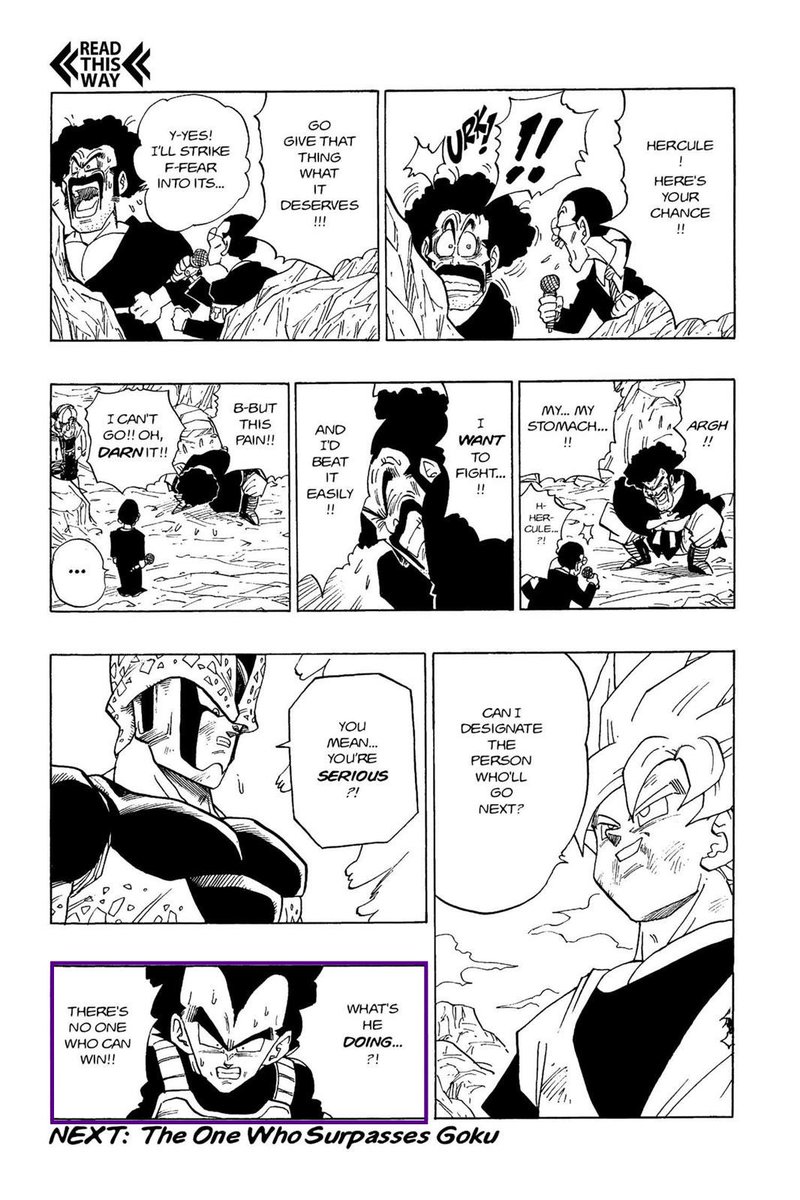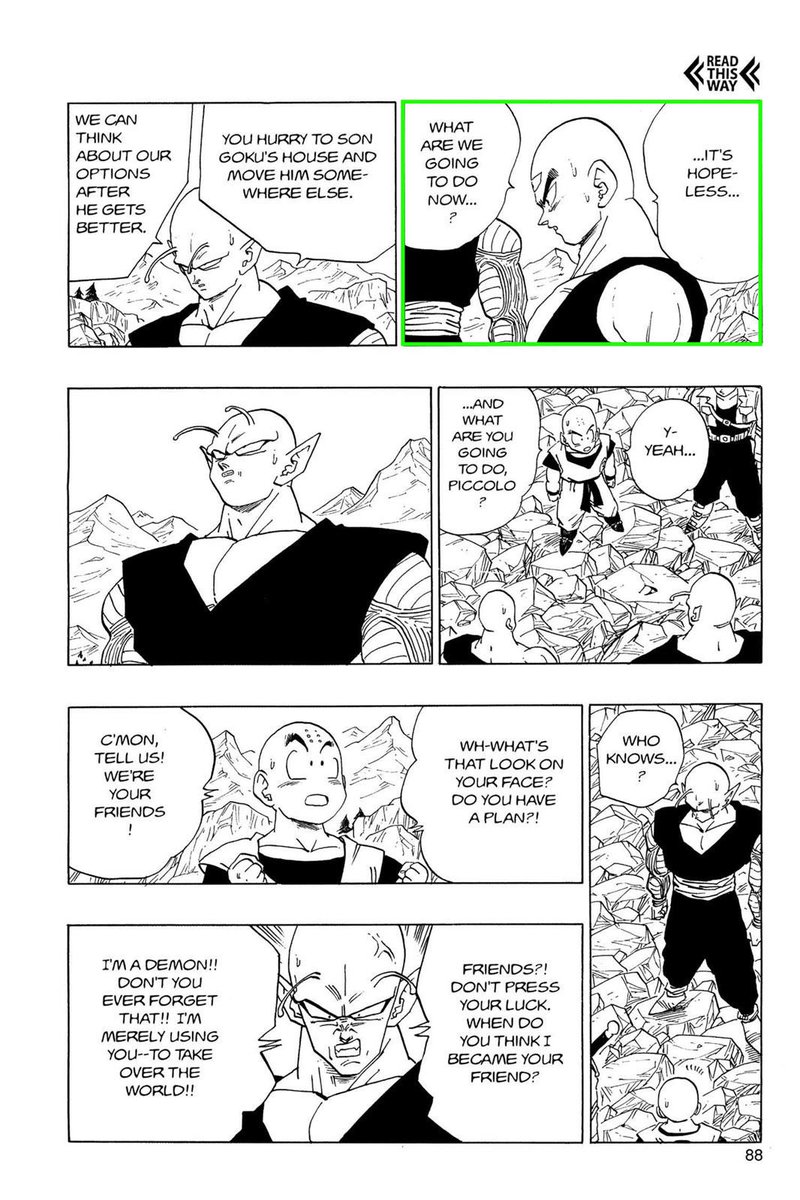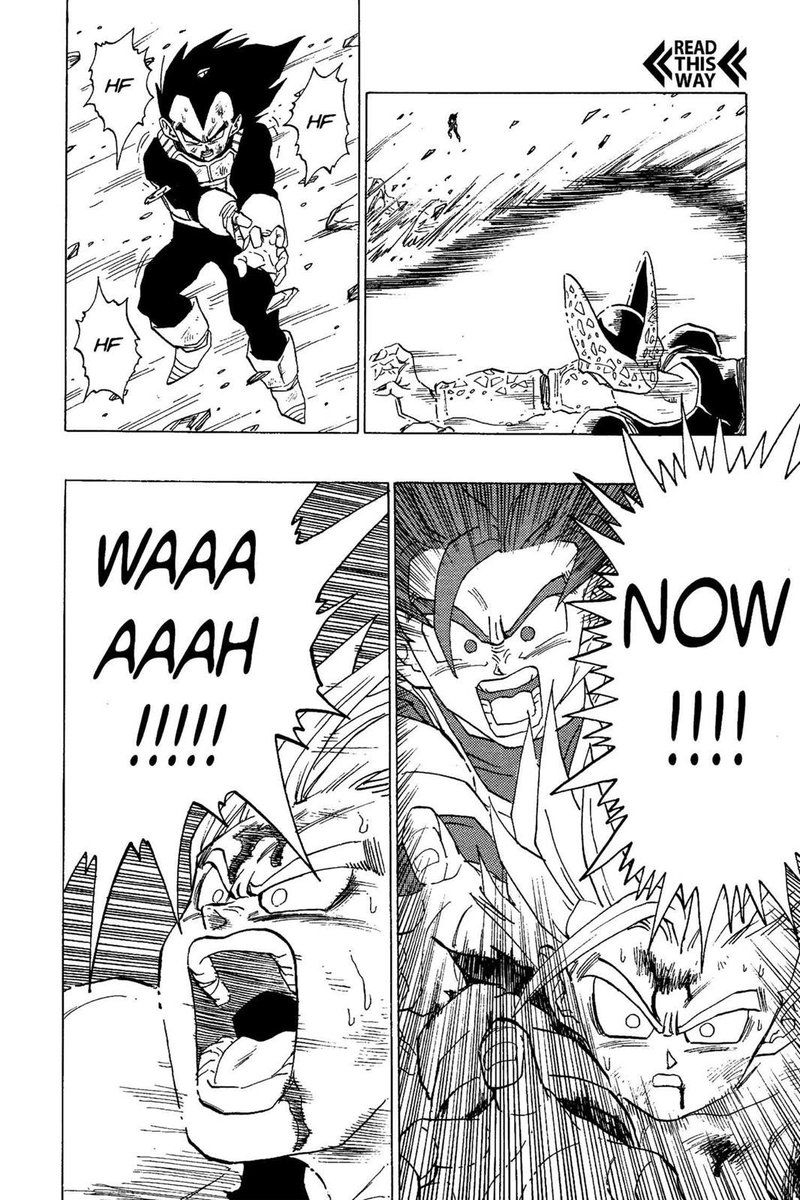Trunks is emblematic of this idea of hope. While he may seem self-assured and confident in his initial confrontation with Freeza, we soon grasp his insecurities about his strength and his failure to be that idealized “hope”- the hope for a better future.
Before leaving, he tells Goku that perhaps he may be able to hope again; implying that at one point he lost his hope. However, we will quickly learn that this is merely false belief that feeds into his “lie”-the lie being that he needs others’ strength to get anything done,
which arises out of his own failings against the androids from the future. Furthermore, we learn that in the future-after Gohan is killed-Trunks blames himself for his death as Gohan told Trunks to stay out of the conflict before he was killed.
He eventually pursues the androids and is assured in his ability to stop them, but he is quickly proven wrong and hospitalized. This acts an inciting incident for him to start to develop and believe in his lie-the lie being that he needs someone to save his timeline for him-
that we witness for a large part of the remainder of the arc.
Vegeta, on the other hand, has constantly been confident in his ability to overcome any adversaries that come his way; however, it is often to the point of cockiness (an idea which will recur later in the arc).
Vegeta, on the other hand, has constantly been confident in his ability to overcome any adversaries that come his way; however, it is often to the point of cockiness (an idea which will recur later in the arc).
When Trunks returns to the present, he constantly doubts his own power and views the androids as monsters, which any efforts to defeat them are pointless. He’s perpetually ruled by fear and vengeance; which often clouds his judgment and leads to apprehension.
Vegeta, on the other hand, thinks that nothing can be greater than he is and that if they are that strong he should still be the one to face them alone. So while Trunks doubts, Vegeta is self-assured. However, both of these traits end up being self-destructive when unchecked.
A notable example of such is their confrontation with the androids. During Vegeta's fight with 18, Trunks remarks, “I never knew my father was so powerful. He's holding his own against those androids”-androids we later find out are tougher than those in Trunks’ timeline.
Trunks underestimates what he and others are capable of because of his fear and experiences. On the other hand, Vegeta makes a lot of mistakes, but he never makes the mistake of underestimating what he is capable of, as mentioned by both Piccolo and Goku in this arc.
As for Goku, he represents a balance of these traits. He knows when he’s in over his head, but he never underestimates his own power; all the while being able to trust in the strength of others. This, along with his tenacity, is why he’s made it so far.
Conversely, Gohan is a character who has persistently struggled with his confidence and resolve since his inception.
During the Cell games, Gohan is unkowingly thrust into the conflict with Cell, as a result of his father’s wishes.
During the Cell games, Gohan is unkowingly thrust into the conflict with Cell, as a result of his father’s wishes.
The only problem here being that while Goku has faith in Gohan’s ability, Gohan doesn’t have belief in his own ability and doubts if he is even capable of stepping up to the plate.
Now faced with the prospect of having to kill, he couldn’t do it.
Now faced with the prospect of having to kill, he couldn’t do it.
Not that he lacked the ability, but rather the willingness and resolve to do such. So while a character like Goku’s ambition allowed him to achieve what was within his limits, Gohan’s doubt limited what he could achieve.
It is Android 16’s eventual death that is the trigger for Gohan. He realizes that turgid pacifism wouldn’t be able to defeat Cell.
16 represented innocence and an appreciation for life; his death was the needle that broke the camel's back after Gohan saw his friends beaten-
16 represented innocence and an appreciation for life; his death was the needle that broke the camel's back after Gohan saw his friends beaten-
to near death due to his own inability to let go of his inhibitions and fight Cell with his full power. Gohan's entire character arc was about unleashing his hidden potential and being self-doubting and frustrated with his inability to make a difference when it counted.
Furthermore, it was Gohan’s overconfidence and arrogance that lead to his father having to sacrifice his life, thus showing how having too much belief in oneself is self-destructive (similar to what we witnessed with Végeta beforehand in the arc)
Goku and Gohan’s character are often juxtaposed to portray their disconnection. This disassociation was well represented in Gohan’s final standoff vs Cell in comparison to Goku’s standoff vs Piccolo Daimaō. Both being down an arm, Goku is tenacious and gives it all he has;
while Gohan... Gohsn yields without even trying, thus further adding to the message that you must have belief in oneself.
Finally, let’s talk about Cell; Cell is a creature who desires perfection, but never stops wanting it because of his infinite greed for being more perfect-
Finally, let’s talk about Cell; Cell is a creature who desires perfection, but never stops wanting it because of his infinite greed for being more perfect-
than anyone. In a way this is similar to the protagonists, who also desire power: both Vegeta and Goku desired to surpass their previous limits to become ascended past a regular super saiyan. But they are not the one who defeat cell: it is, as everybody knows now, gohan.
A fighter who didn’t desire perfection, and didn’t desire improvement. He was content with his small life and studying on to find his catharsis. It is made abundantly clear therefore that only he understands the importance of a content life and happiness of living on earth.
The fight against cell, was a defeat for cell on a psychological level: Gohan went past his limit because he desired not perfection, but stability. If cell was defeated by Goku, then it would prove cell’s point that going beyond your limit is the only reason in life. It is gohan,
who is content, and could appreciate the small things in life, that defeated cell. He didn’t challenge himself and out of everyone, his limitations were self-imposed. This ties into the idea of how having confidence and belief in yourself and ability goes a long way.
The Z-fighters constantly see Goku as an idealized “hope” in situations against all odds and the entire premise of the arc is that a world without Goku is an unfavorable one. When Goku was incapacitated from the heart virus and when he ultimately forfeits against Cell,
they believe the situation they find themselves in is hopeless as Goku WAS their “hope”. However, the arc ends with both Goku in the present and future being dead, yet peace is achieved nevertheless. The message being, that as long as someone can take on the mantle of a protector
-truly becoming “hope”-peace can still be attained and that belief in yourself and others—but not to the point of over-reliance or cockiness respectively—can truly make the difference and overcome limitations.
Therefore, the arc ends with Gohan having faith in his ability due to Goku’s encouragement and Vegeta overcoming his pride to assist Gohan in defeating Cell. Trunks, through his experiences in the present timeline, finally has belief in his ability to manifest a better future.

 Read on Twitter
Read on Twitter




















